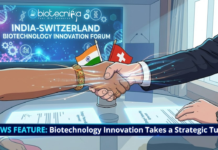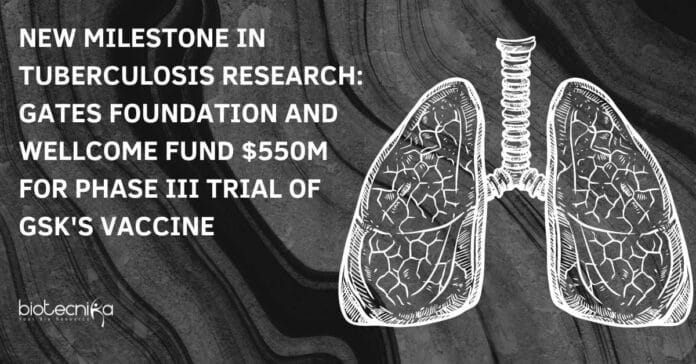Gates Foundation and Wellcome to Finance $550M Phase III Study of GSK’s Tuberculosis Vaccine
Two nonprofit organizations are joining forces to conduct a substantial study on an experimental vaccine aimed at protecting against the most lethal infectious disease in the world, which is not Covid-19.
The Bill and Melinda Gates Foundation, along with Wellcome, will invest $550 million to sponsor a Phase III clinical trial of a novel tuberculosis vaccine developed by GSK. If proven successful, this vaccine could become the first new preventive measure for the deadly bacterial lung infection in over a century.
According to Sara Suliman, a tuberculosis immunologist at the University of California, San Francisco, this is significant news. She explained that the current vaccine only works in children and fails to prevent lung disease in adolescents and adults. Consequently, having a vaccine that could mitigate tuberculosis progression in older individuals would be groundbreaking.
While the world’s attention has been focused on the coronavirus pandemic, tuberculosis has once again claimed its position as the leading cause of death from an infectious disease. The latest report from the World Health Organization, published in October, reveals that approximately 10.6 million people contracted the bacterial infection in 2021, resulting in 1.7 million deaths—an alarming increase compared to previous years.
The vaccine, named M72/AS01E, underwent a Phase IIb study involving nearly 3,600 people with latent tuberculosis, meaning they had confirmed infections but exhibited no disease symptoms. GSK disclosed in 2018 that, following approximately two years of follow-up, two doses of the vaccine were 54% effective in preventing the progression of infections into active pulmonary disease.
These results surprised and invigorated tuberculosis researchers, who have faced numerous failures in their attempts to develop new vaccines against this incredibly challenging pathogen that disproportionately affects the poorest and most vulnerable populations. Despite the excitement, GSK decided against conducting larger studies required for regulatory approval.
“There has been frustration over the delayed launch of this trial,” remarked Thomas Scriba, a professor at the University of Cape Town and deputy director of immunology for the South African Tuberculosis Vaccine Initiative. He further expressed his wish for increased dedication to addressing this disease, which has suffered from inadequate investment for far too long.
The Bill and Melinda Gates Medical Research Institute, a subsidiary of the Gates Foundation specializing in the development of diagnostics, drugs, and vaccines—similar to a biotech company—stepped in to license the vaccine from GSK in early 2020 for future use in countries with a high tuberculosis burden and low to middle incomes.
Finally, after a lengthy wait, Gates and Wellcome are preparing to test the vaccine on 26,000 individuals across more than 50 sites in Africa and Southeast Asia, commencing early next year. Trevor Mundel, President of Global Health at the Gates Foundation, stated during a press briefing that the study is expected to take four to six years to reach its endpoints.
Bill Gates, in a press statement, emphasized the urgency of developing new tools as tuberculosis cases and deaths continue to rise. He stated that increased investment in safe and effective tuberculosis vaccines, coupled with a range of new diagnostics and treatments, could revolutionize TB care, saving lives and reducing the burden of this devastating and costly disease.























